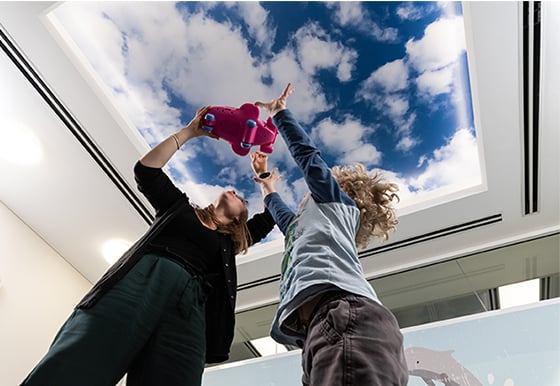Search
Showing results for "autism"

News & Events
Study to use eye masks and earplugs to teach preterm babies the rhythm of lifeResearchers will fit nearly 500 preterm babies with tiny eye masks and earplugs for the study.

News & Events
How much is the right amount of therapy?In this blog, CliniKids Director Professor Andrew Whitehouse and Research Development Manager Sarah Pillar explore one of the most common questions when it comes to support for autistic children - how much is the right amount of therapy?
Research
Motor abnormalities in Rett SyndromeFor most individuals, there is initial developmental progress followed by regression at around 6–30 months. The classic signs of RTT then become apparent.
Research
Incidence and prevalence of falls in adults with intellectual disability living in the community: a systematic review protocol.Our objective is to synthesize the best available evidence to determine the incidence and prevalence of falls in intellectually disabled adults in the community
Research
A fine balance and a shared learning journey: Exploring healthcare engagement through the experiences of youth with Neuromuscular DisordersExplored Youth with Neuromuscular Disorders perceptions of health, health behaviors and healthcare engagement
Research
Low-dose oral interferon alpha as prophylaxis against viral respiratory illness: A double-blind, parallel controlled trialA double-blind, placebo-controlled clinical trial was conducted investigating the use of low-dose oral interferon alpha for preventing acute viral...

A simple set of eye masks and ear plugs – an inexpensive solution explored in a successful pilot study by The Kids Research Institute Australia, together with the Child and Adolescent Health Service – could hold the key to better outcomes for our tiniest bubs. Now, a nationwide clinical trial is testing the idea
Research
Coping Compass: co-designing a brief online positive psychology programme for youth with chronic conditionsThis article presents a case study of a 12-month co-design process with young people (16–25) living with chronic health conditions to create an online, self-guided intervention based on positive psychology. Following an established framework for co-designing with vulnerable consumers, the co-design process was designed with stakeholders to promote accessibility and maximise youth engagement in the design of the programme.
Research
Novel approaches to measuring cognition in individuals with severe to profound functional impairment: A pilot study in SCN2A-related disorderValid clinical outcome assessments with the ability to capture meaningful aspects of neurodevelopment for individuals with neurogenetic conditions associated with profound functional impairments are lacking, yet critical for clinical care and clinical trial readiness.
Research
The feasibility of a digital health approach to facilitate remote dental screening among preschool children during COVID-19 and social restrictionsTele-dentistry can be useful to facilitate screening of children, especially those living in rural and remote communities, and during the COVID-19 pandemic. This study evaluated the feasibility of tele-dental screening for the identification of early childhood caries (ECC) in preschoolers using an app operated by their parents with remote review by oral-health therapists.
